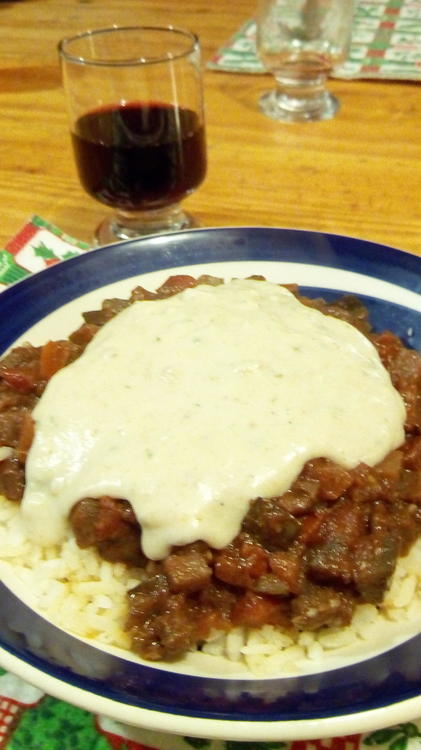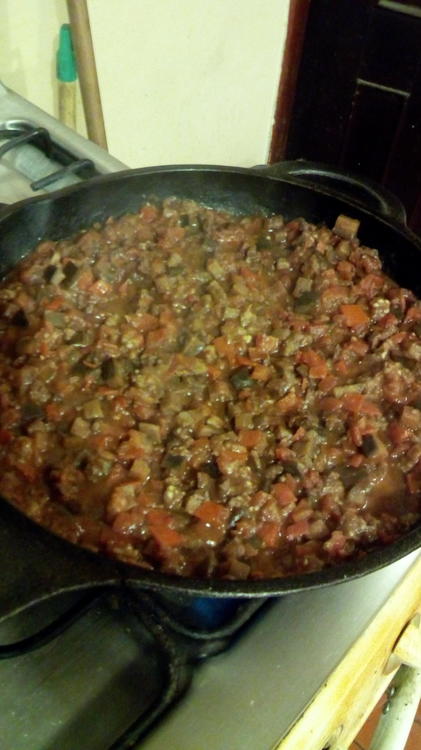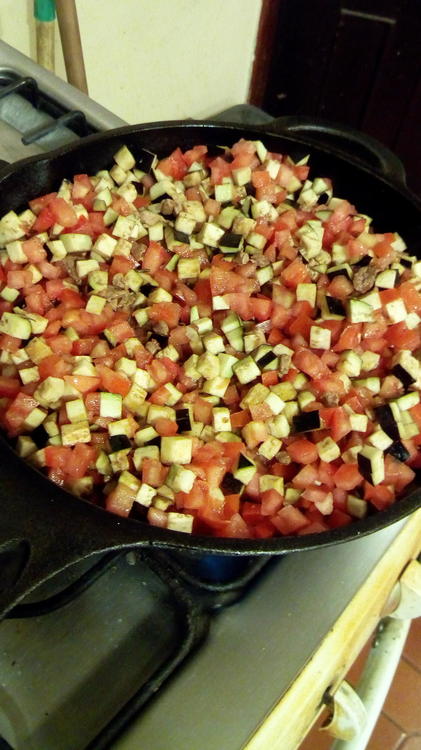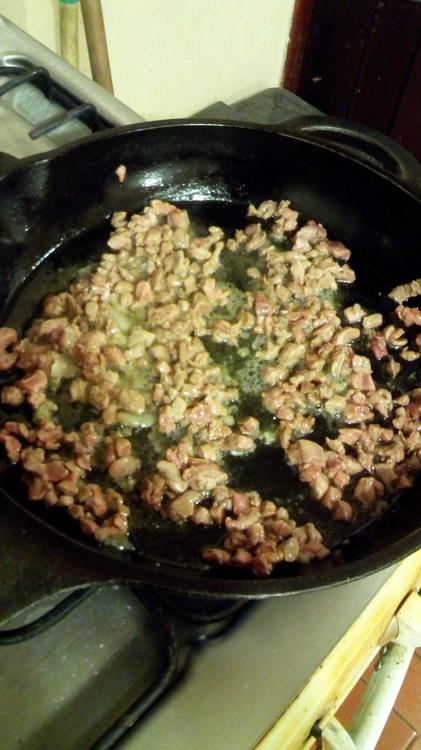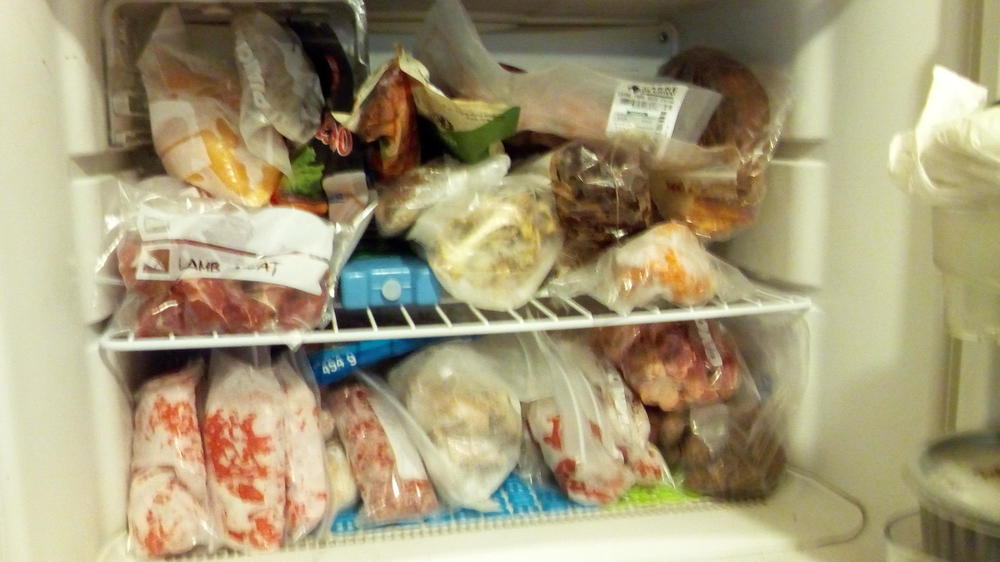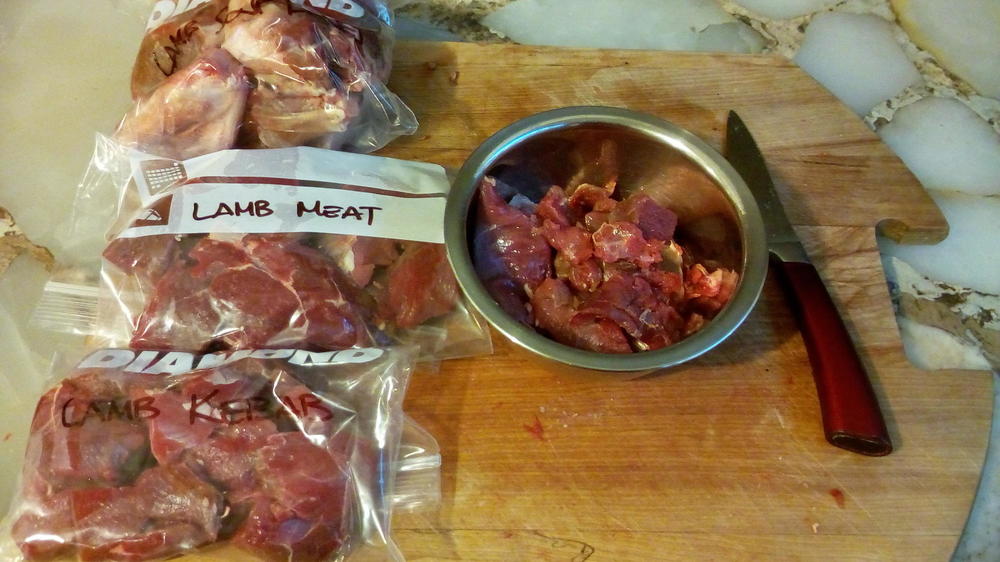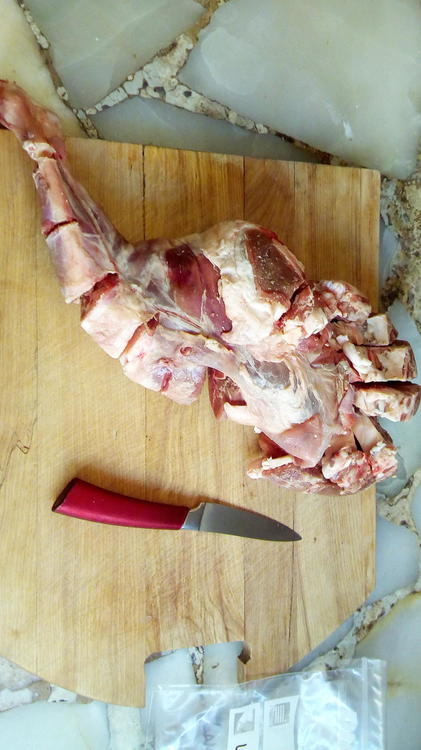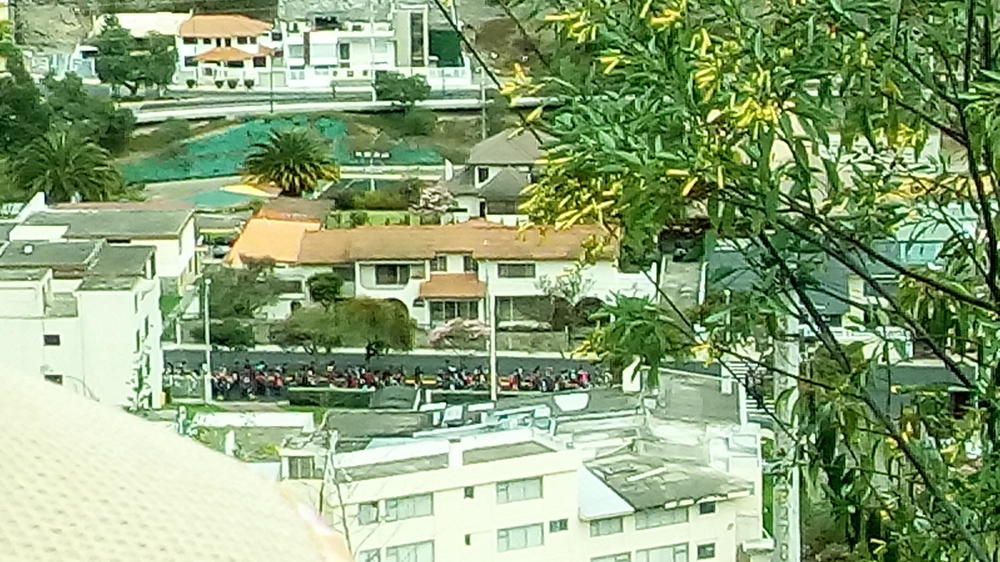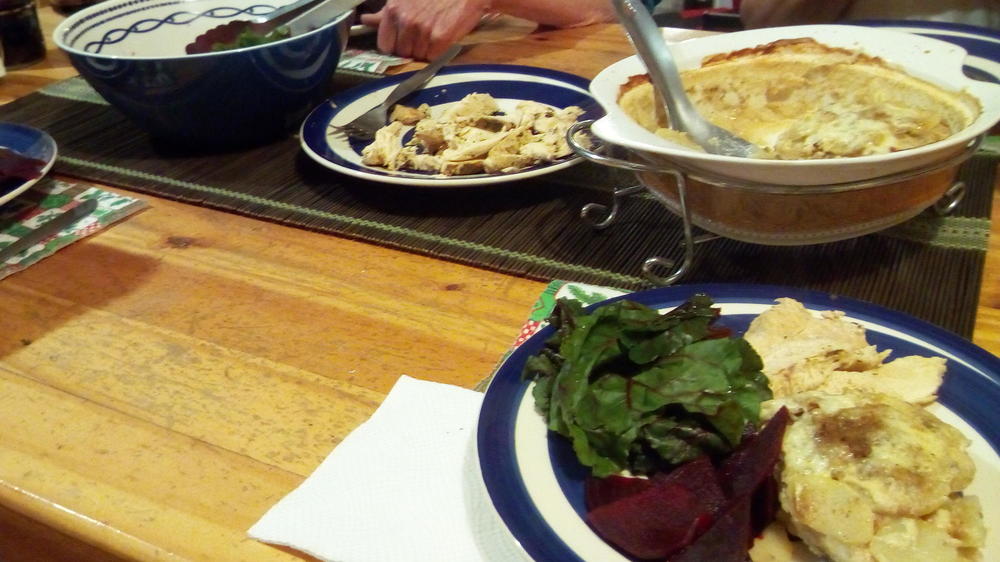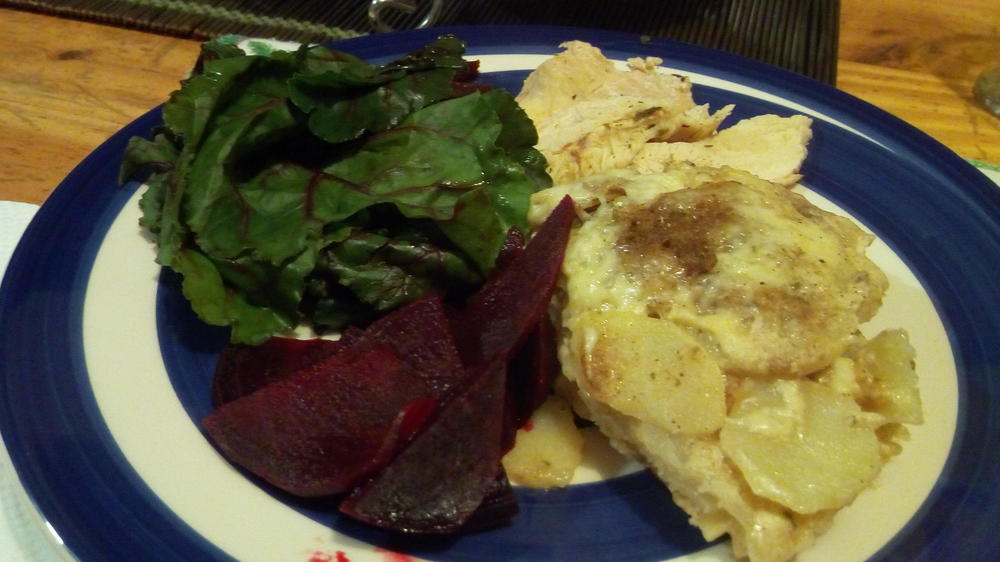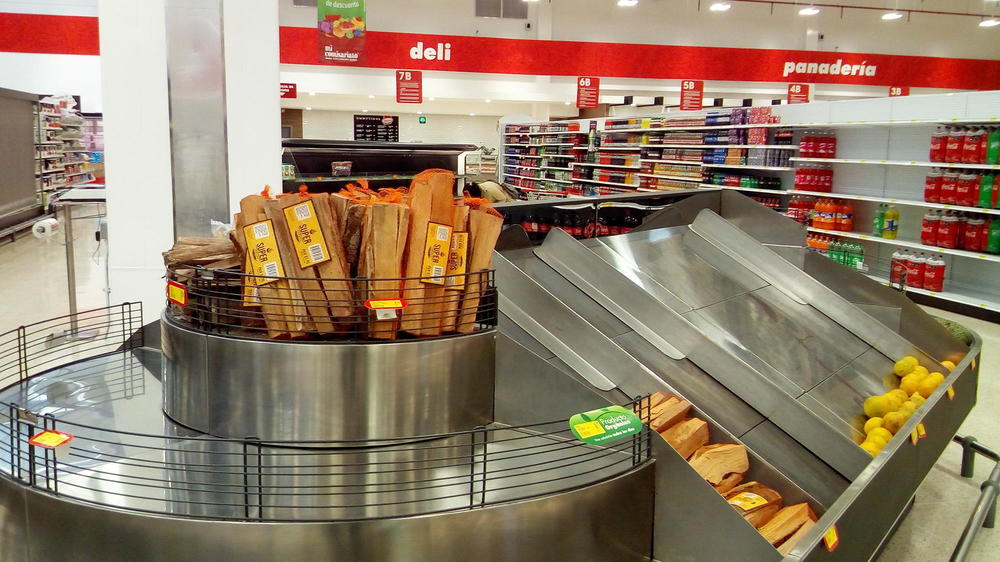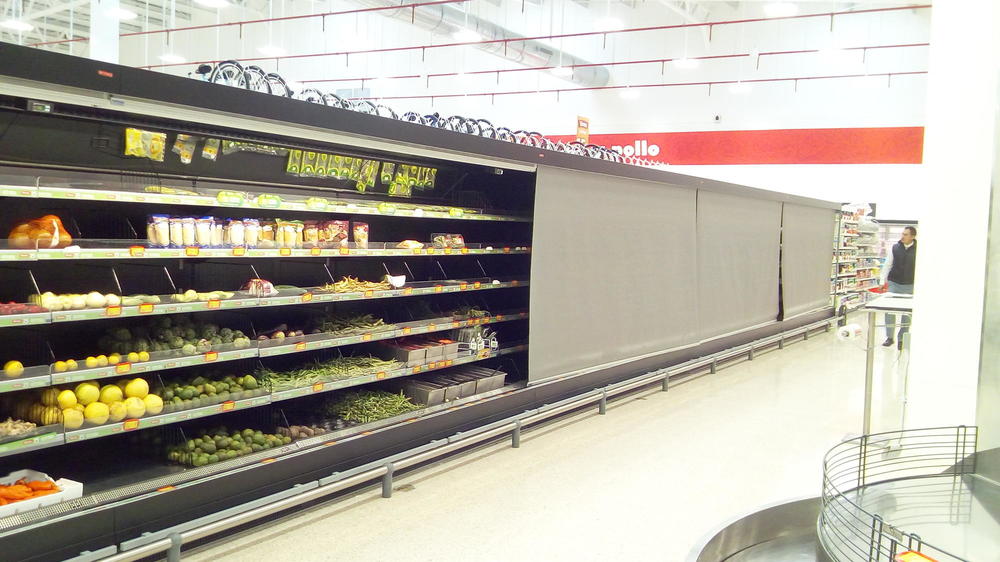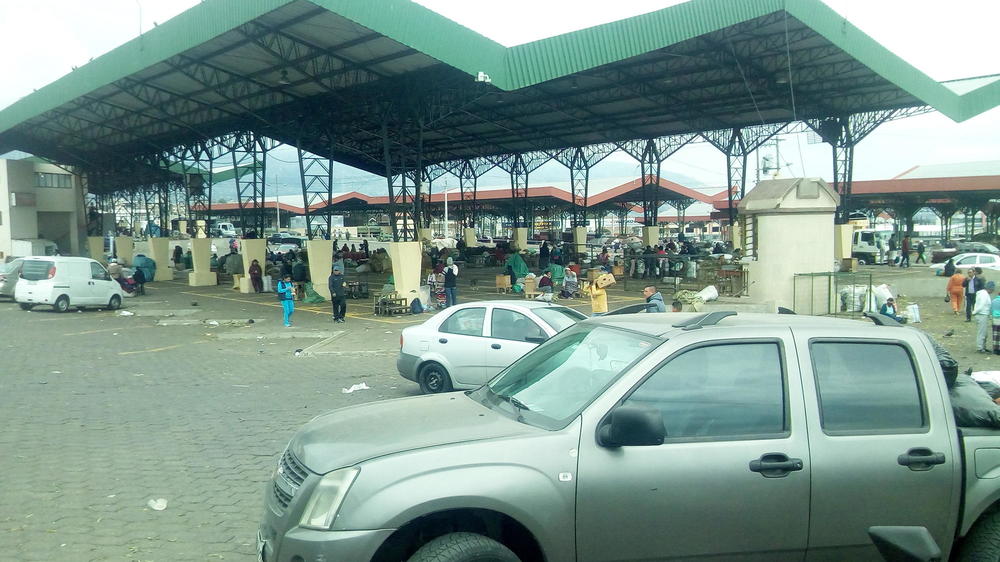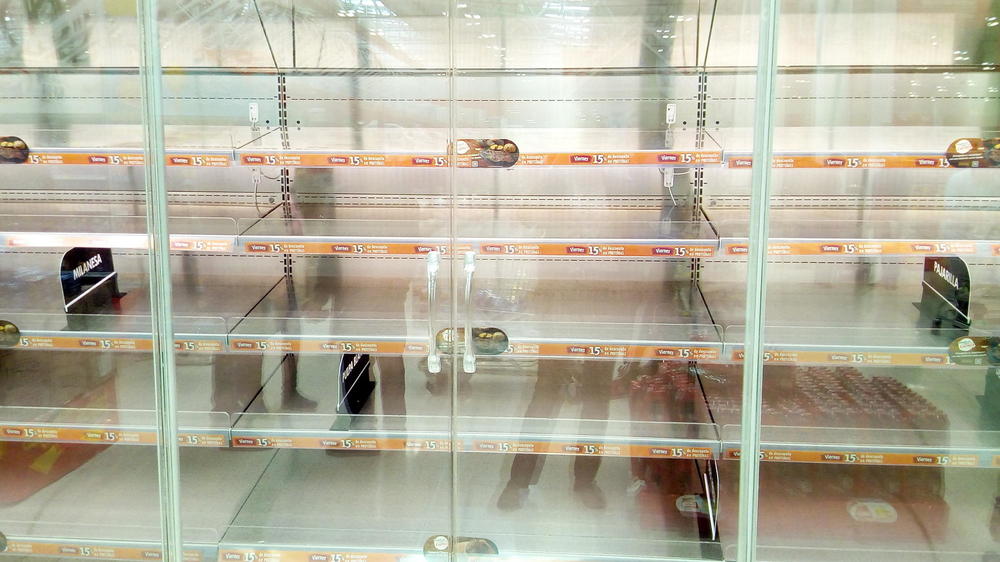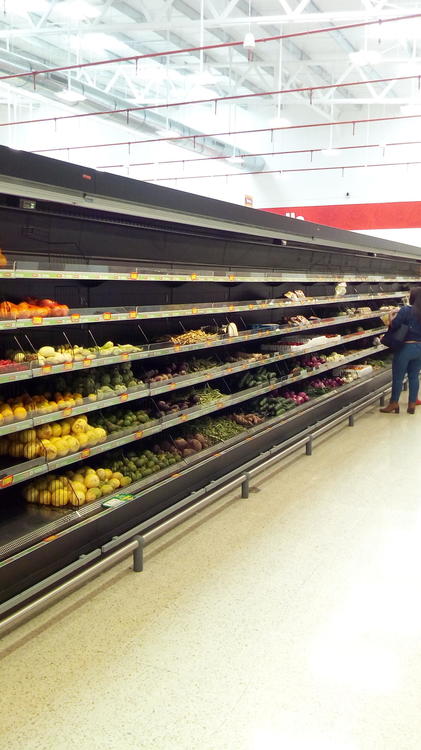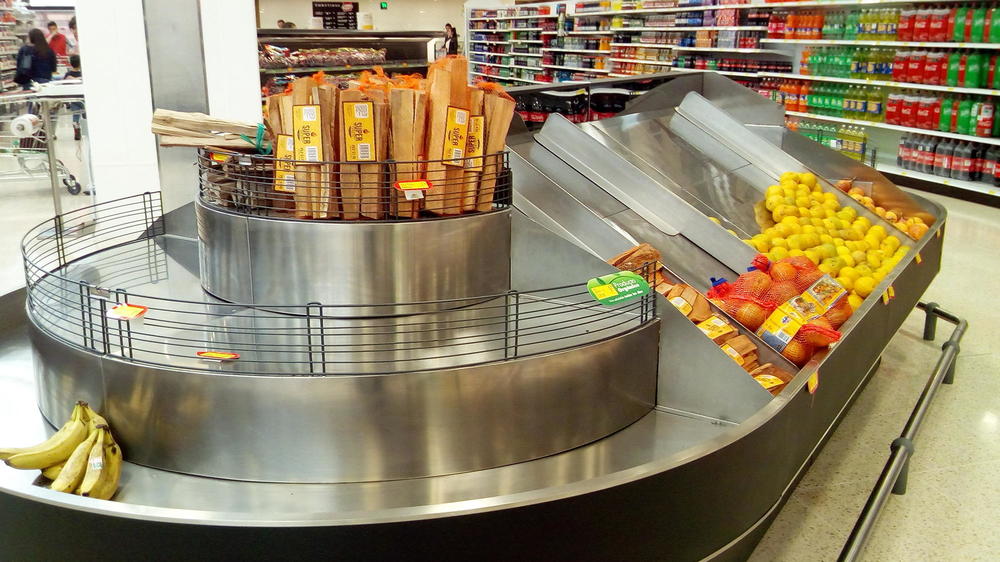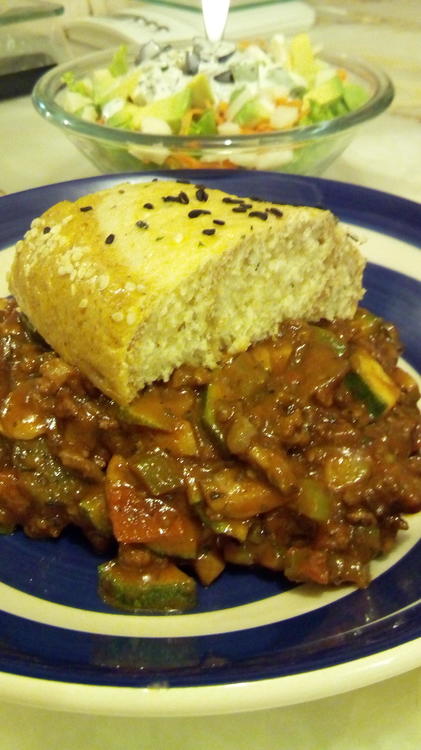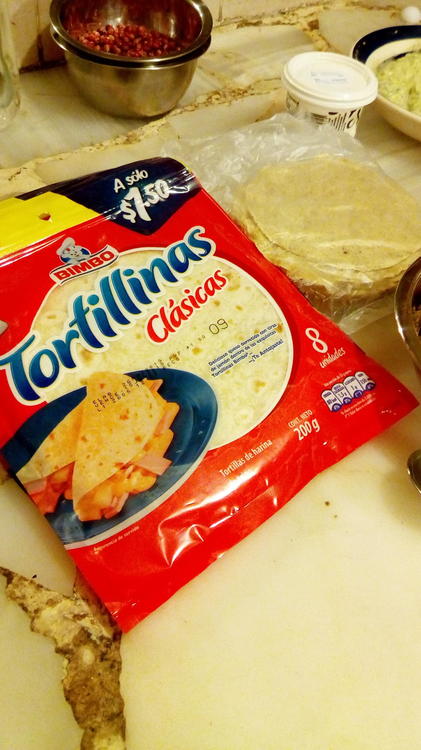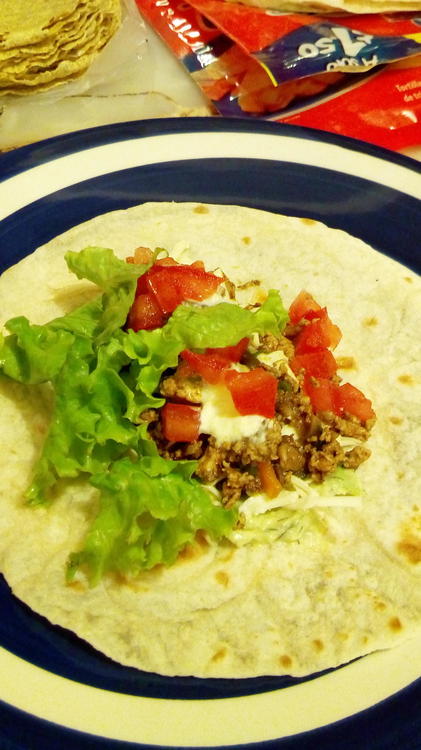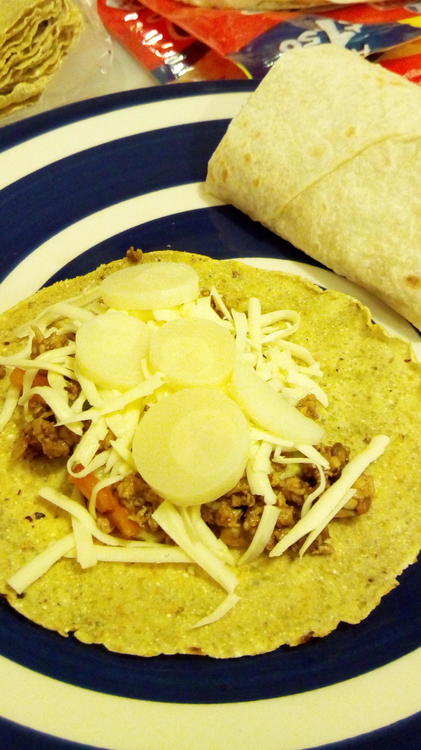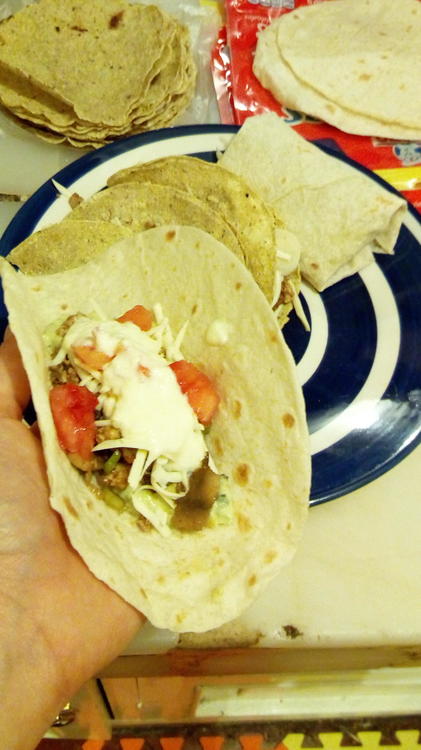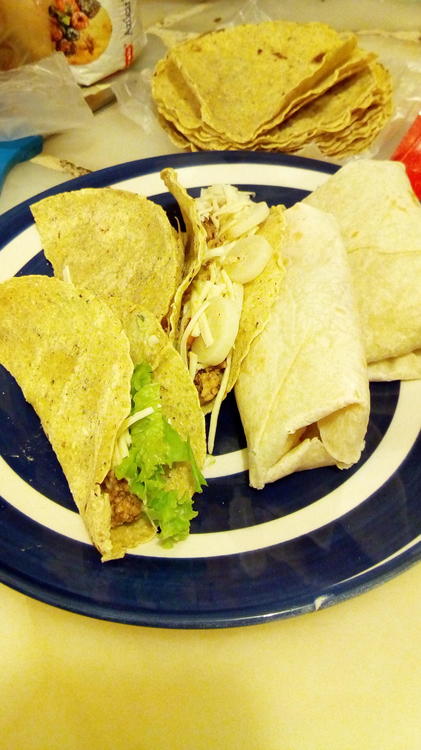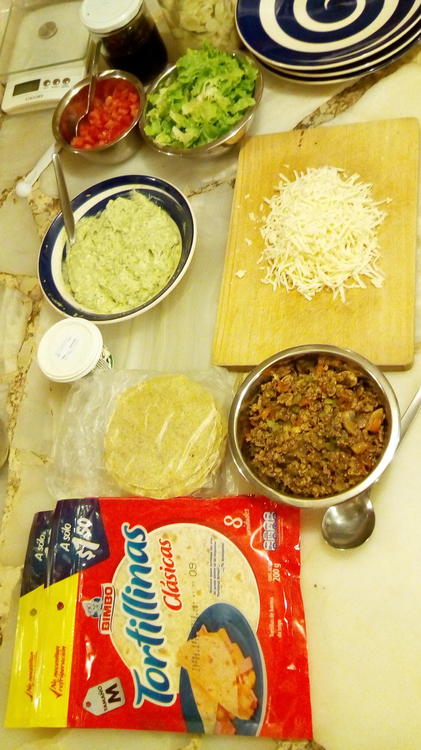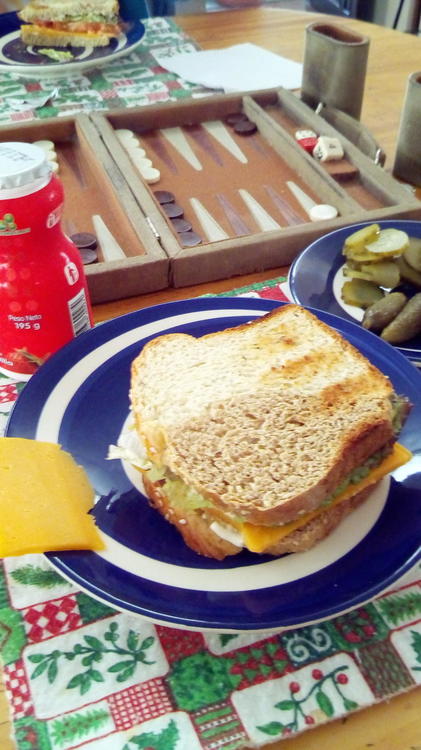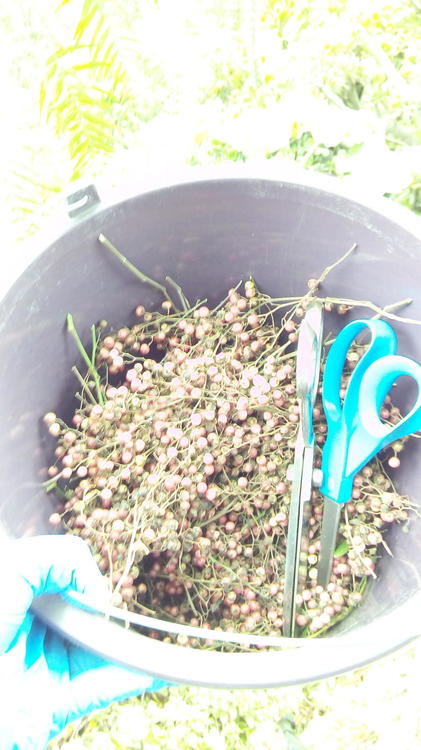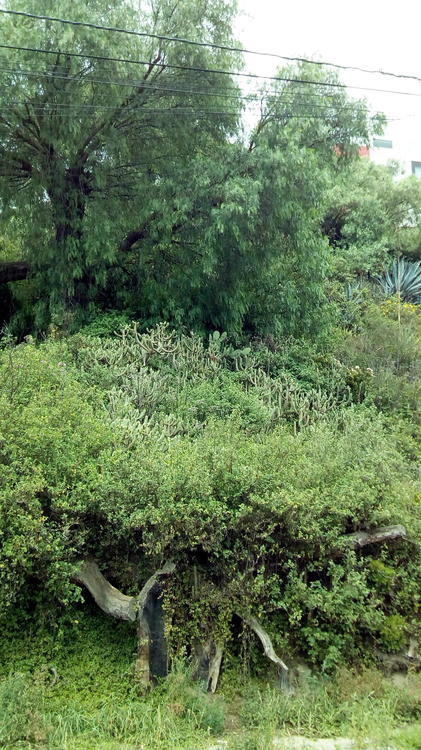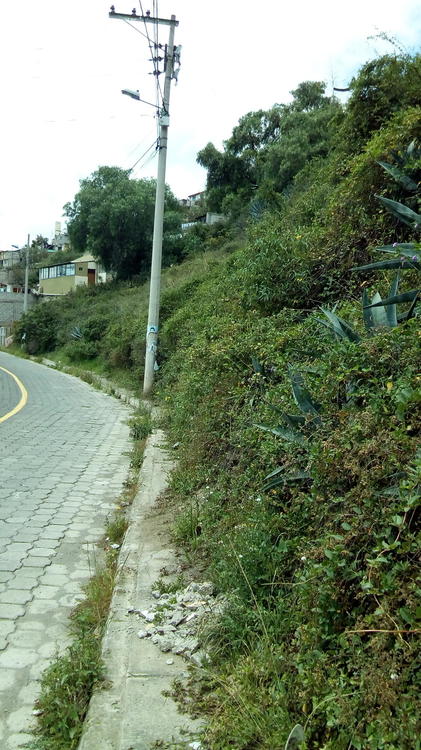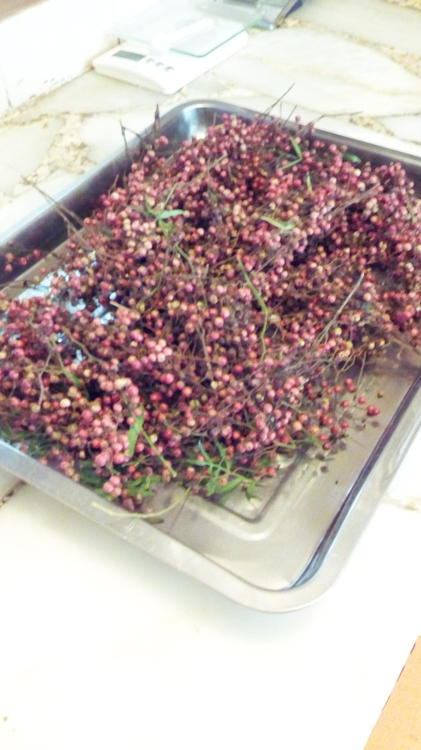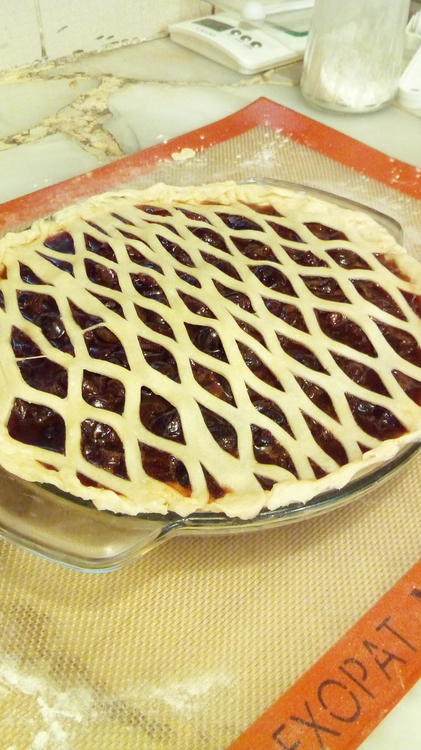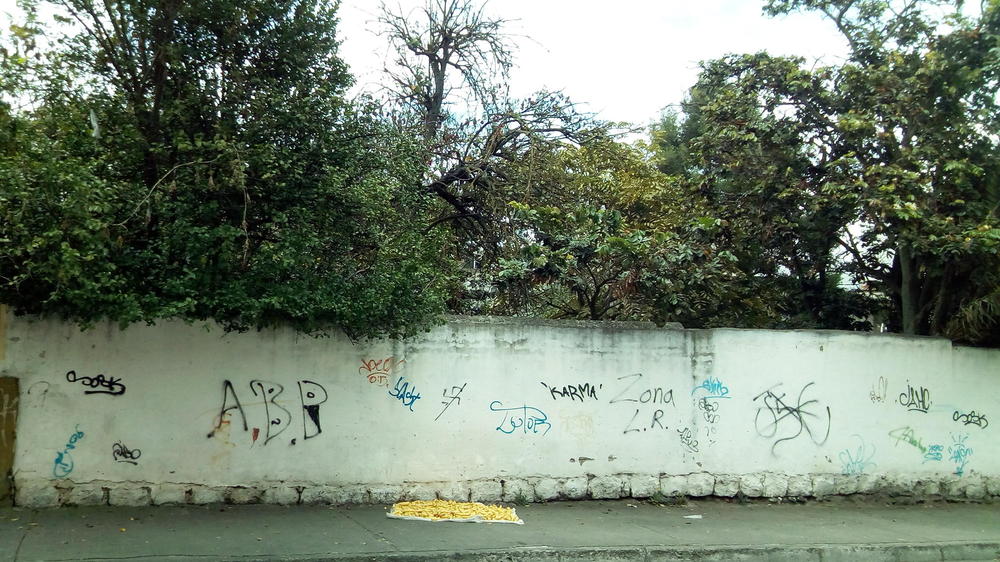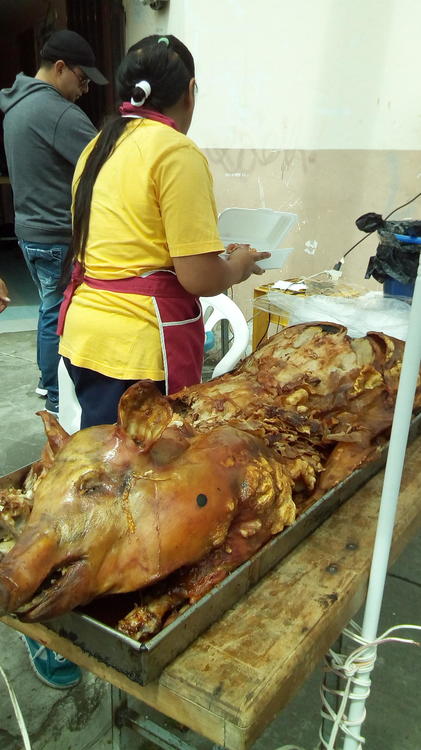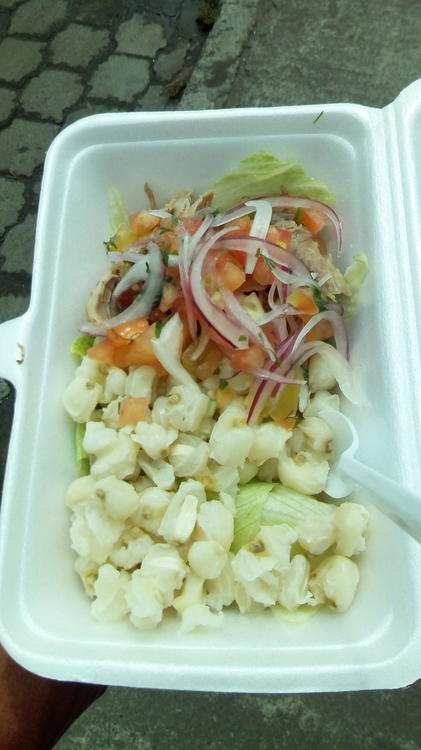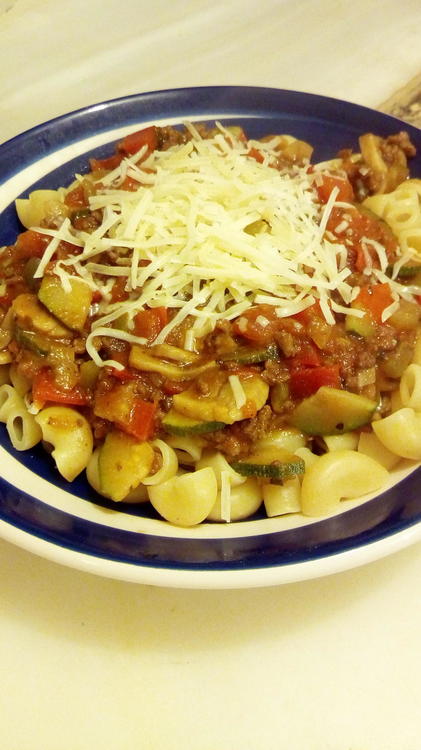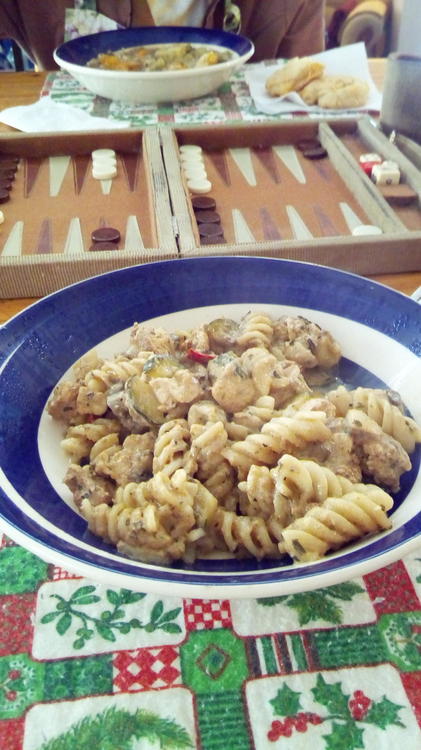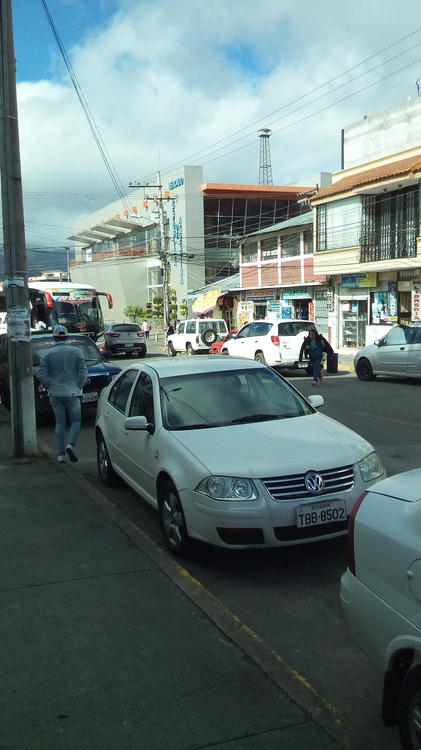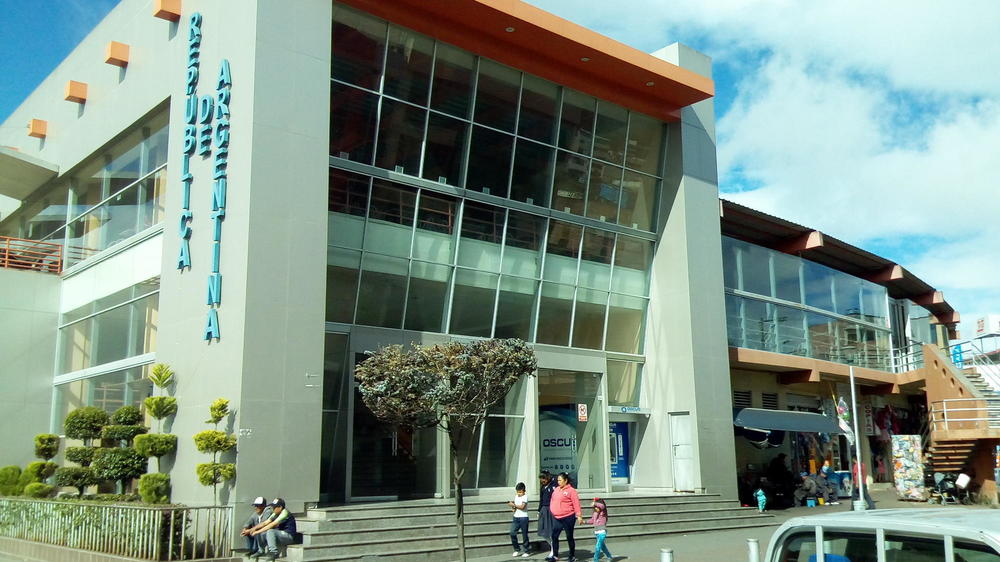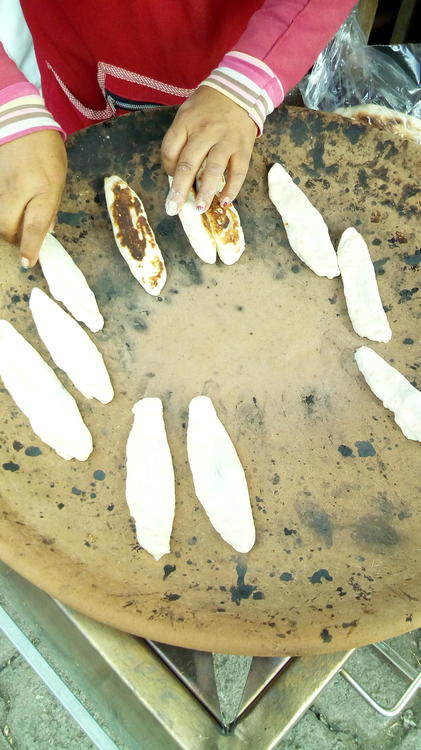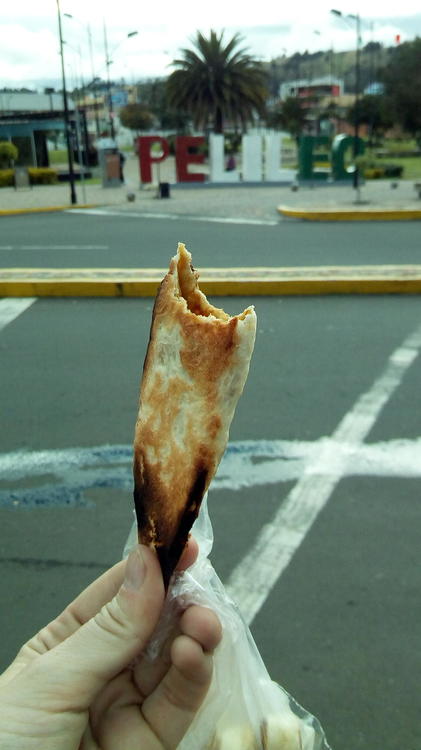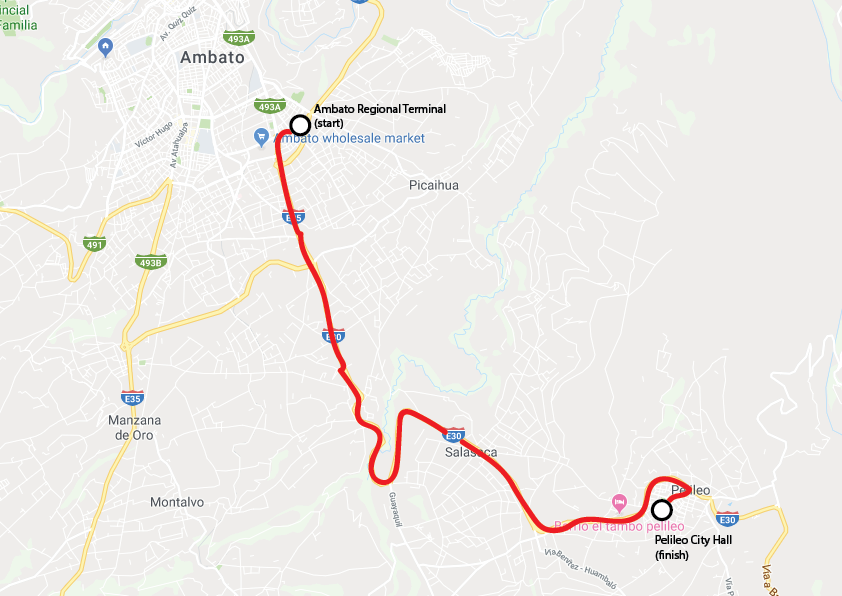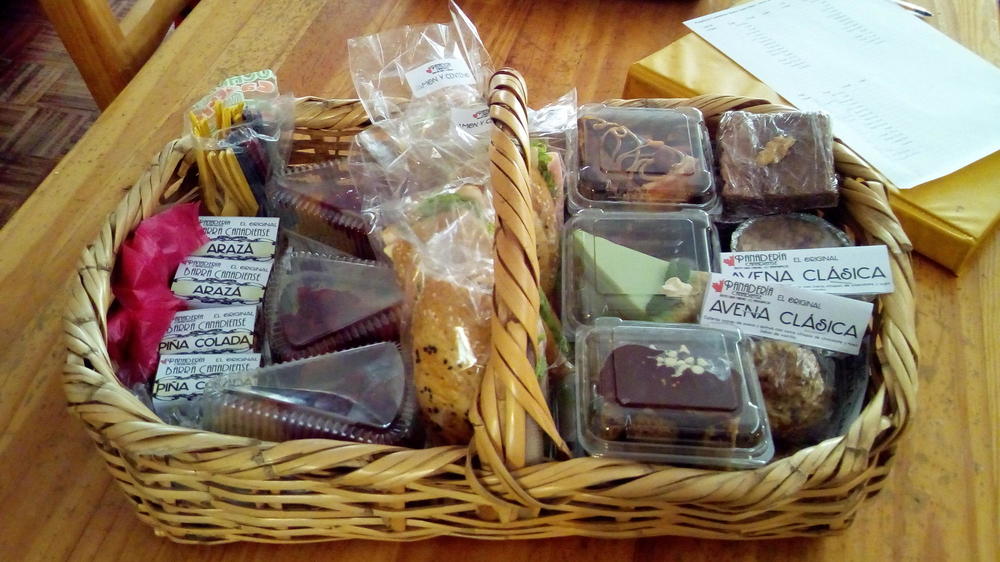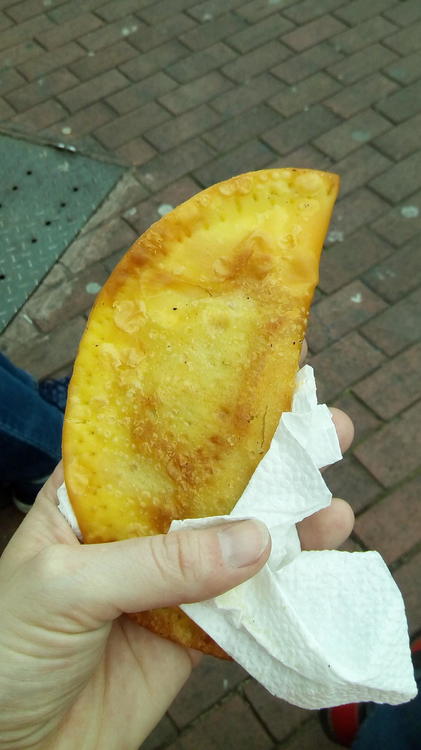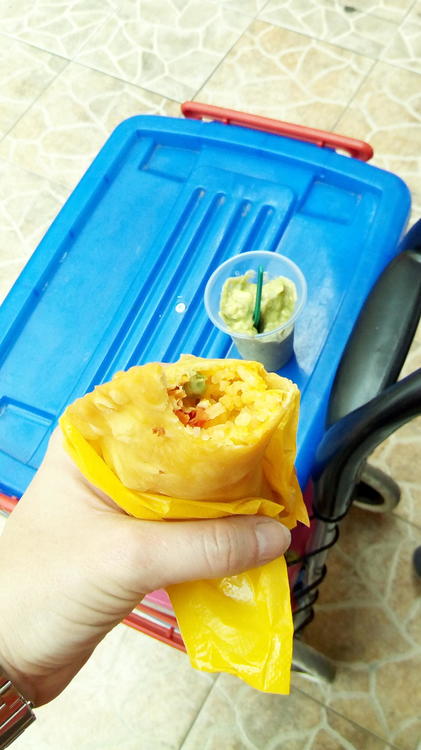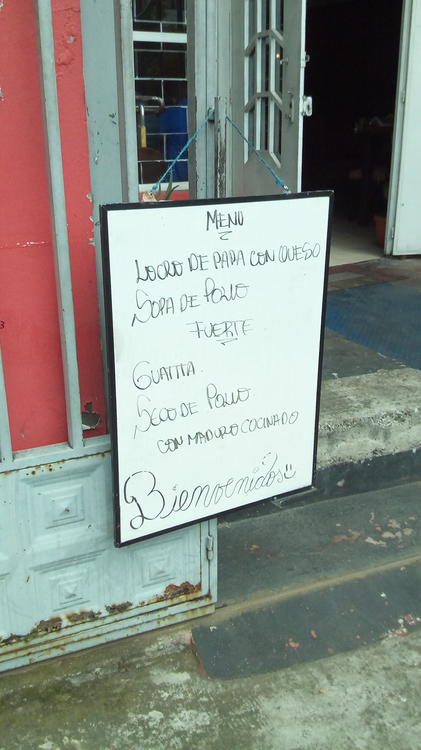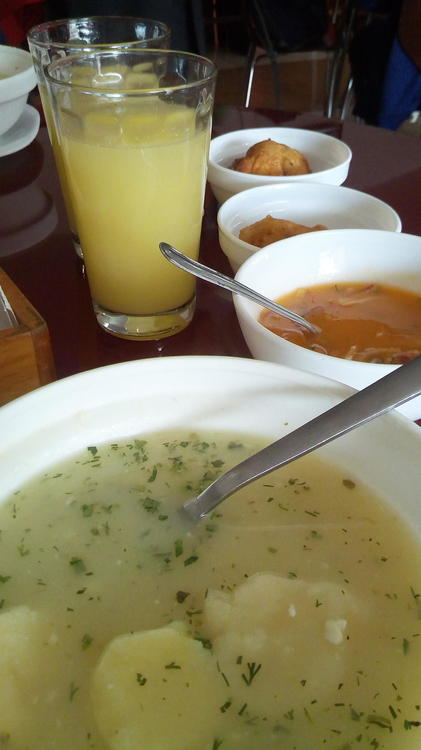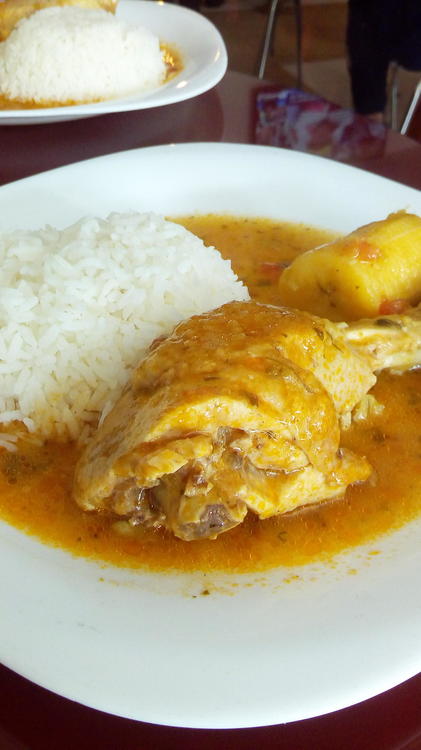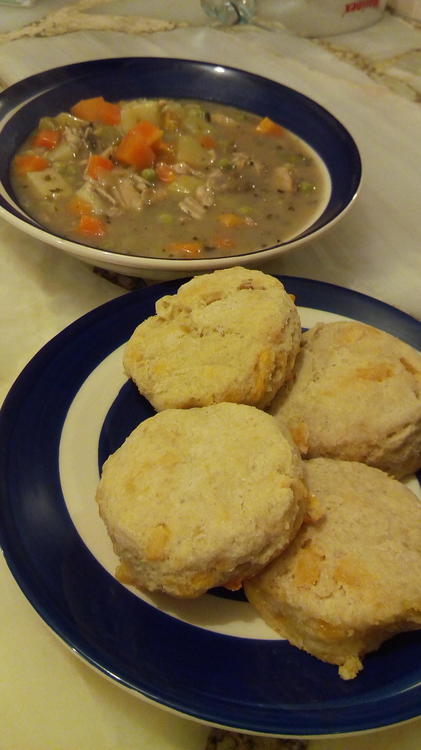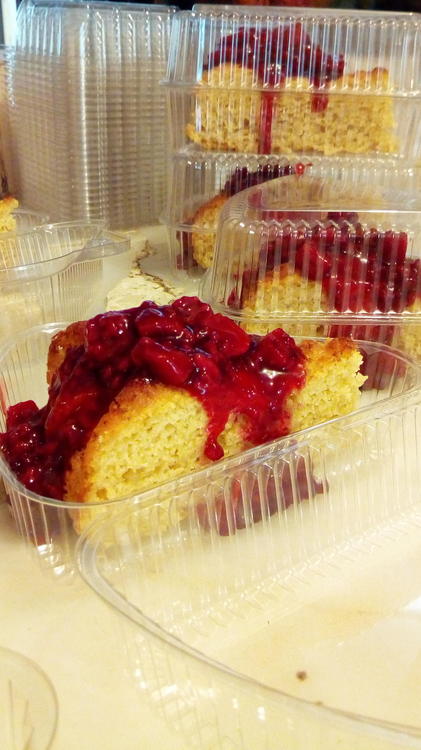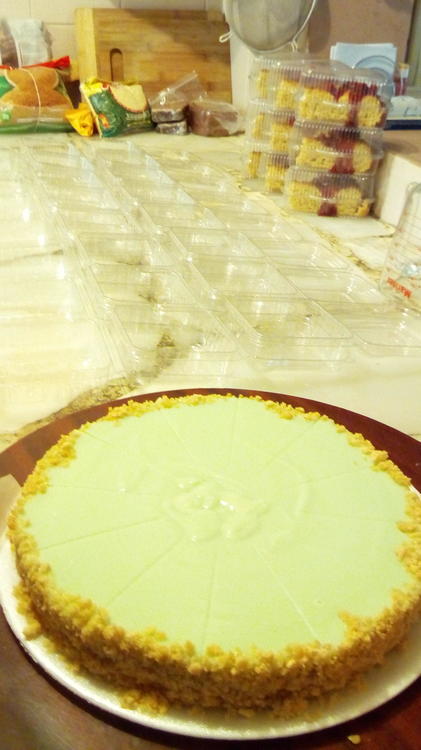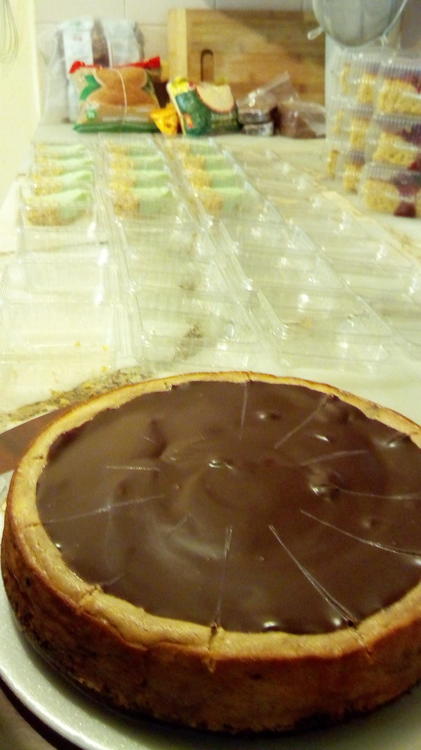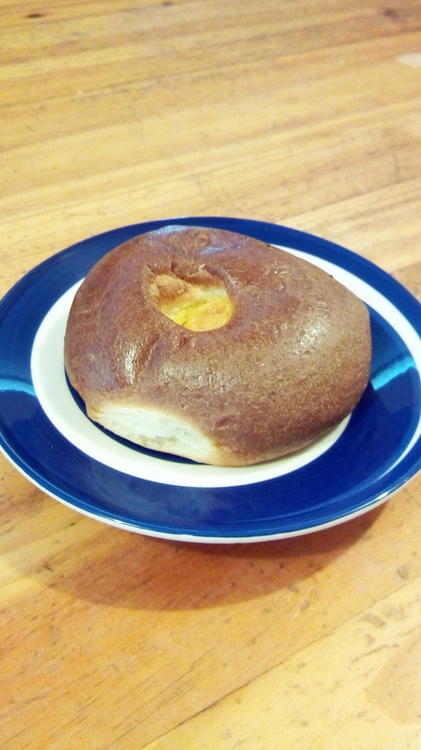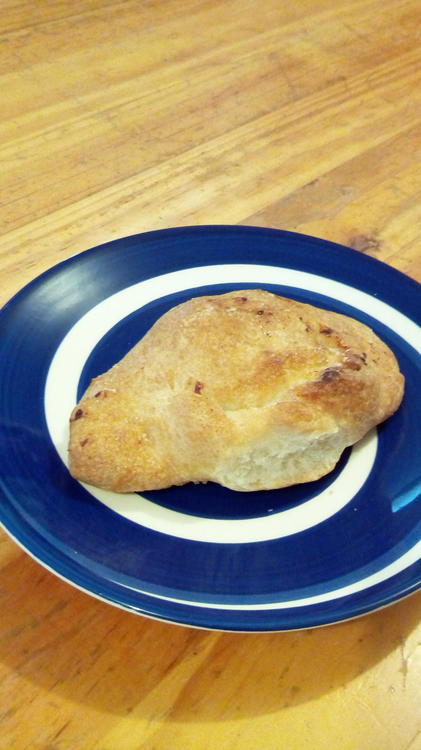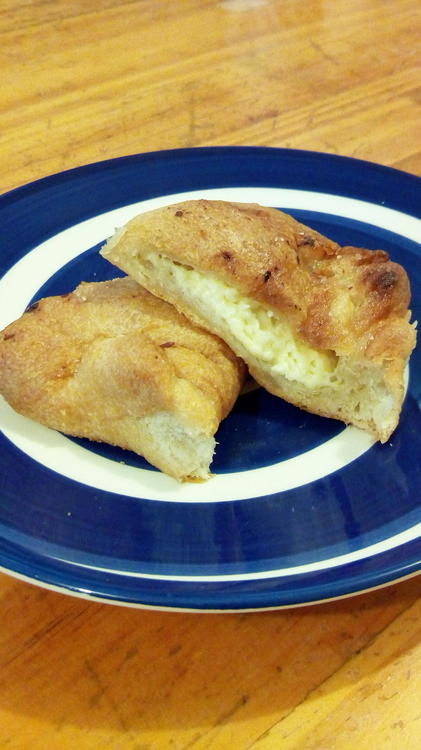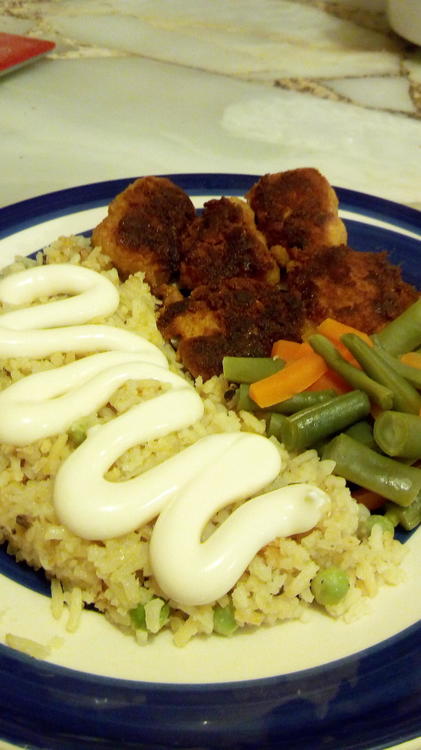-
Posts
2,383 -
Joined
-
Last visited
Content Type
Profiles
Forums
Store
Help Articles
Everything posted by Panaderia Canadiense
-
So, today was a day for staying in. It's the first official day of the National Strike, in which basically everybody walks off their jobs. My city remains calm, but the indigenous of the high páramos marched in downtown this morning, and a strict curfew is in effect. This meant a brunch on fridge-cleanings (aka guess that leftover!) Which was not inspiring, but it was filling, which is more the point. It also freed space in the refrigerator. This afternoon's task was a bit more daunting: before the markets closed their doors on Sunday, I bought an entire 3kg haunch of lamb from Glorita, my favourite butcher. It's time to break this down into meal-sized units, strip off the fat and connective tissue, and basically get it ready for easy meal prep in the coming weeks. The little steel bowl is tonight's meal - lamb moussaka. I got four meals out of the haunch: meaty bones for scotch broth, smaller cubes for kebab, and larger chunks for the grill. The moussaka is on the stove now. I'm doing a stove top version of the dish to conserve gas; the bechamel sauce will be on the side, and I'm serving it with rice. My freezer still looks good, but one of tomorrow's challenges going to be tomato hunting.
-
This is going to be really interesting, because Ambato is uniquely prepared for a siege of this kind. It's unlikely that the city will ever face true starvation - most houses have kitchen gardens and there is a huge culture of urban orchards. We might eventually become vegan, but we won't die of that!!! The test is going to be in how well we can pull together as communities to make sure everybody's needs are met.
-
Here's dinner - cooking during a shortage is generally simple fare whose leftovers can form the foundation of future meals. In this case, roasted chicken breast, scalloped potatoes, and steamed beets and greens. The bones from the chicken breast, along with the drippings, go into the freezer for soup base. The potatoes will be incorporated into a locro, and any leftover beets will go to borscht. The idea is to plan meals with as little waste as possible; our trimmings and peels (as everyone else's in the Barrio) are going to feed my downhill neigbours' pigs, which we may wind up eating as a community, near the end of the month if the situation doesn't improve.
-
Well... I'm originally from Northern Canada. I habitually prepare to be snowed in, even when I'm living somewhere that it doesn't snow! This means that I have a lot more stock layed in than the average Ecuadorian family - the philosophy here is that one can always get fresh ingredients, so why worry about holding anything? If the strikes go on past the end of the he food stocks? It's already happened in Cuenca, about 6 hours south of me. The military had been flying in a C-130 (Hercules) full of staple food and basic supplies in a daily run; they'll do the same for us. Rationing will go into effect at the same time. This short term hardship is understood by just about everybody in the country over the age of 25 as a necessary measure to effect gravely needed social change. So people essentially come together as communities, tighten their belts, and endure.
-
And here we are on Tuesday, 8 October. I went back to that supermarket in the hopes that some meat had maybe materialized.... It hadn't. I've got stock in my freezer for about three weeks of meals; I've currently got a houseguest / refugee from the US staying with me - she was trapped by the strike, and I'm cooking for four. What you see at the extreme bottom are the last two packets of chicken livers and gizzards, which I forwent because I'm not super fond of livers. Staff inform me that the meat case in this market won't be restocked until after the strike ends, since their supply chain is in the next province, across six roadblocks. The fresh produce section now contains a weird mix of specialty fruits and vegetables - Peruvian ají, grapefruits, chayote, scrapie, eggplants, beans in shell, and purple sweet potatoes. The roll shutters block off half of the stand, because it's empty and they're not anticipating that it will be restocked. And this one's even emptier - the plantains are gone, and there are only a few oranges left, along with firewood for your barbecue (and not much of that.). You can also see that sodas are starting to diminish as compared to Sunday.
-
Hello again from south of the equator! As you may or may not have heard (because the international news media isn't really giving the situation much coverage), Ecuador is in the grip of a major social protest movement. This started on October 1, when fuel subsidies in the country were abruptly struck causing the prices of gasoline and diesel to more than double overnight. Transport and heavy haulage unions immediately went on strike, and blocked the main roads of the cities with their vehicles in protest. The indigenous movements of the central Sierra, beginning in my province, Tungurahua, joined the strike on October 2, and the President quickly declared a State of Emergency that restricts movement, freedom of the press, and freedom association. The indigenous took over the road blockades on October 3, cutting the cities off from the world; Ambato became an island overnight. It is now October 8, one week into the blockades. Shortages in the fresh markets and supermarkets began on Sunday, as people realized that we were in for a long-haul of protest and possibly an overthrow of the sitting government. Ecuador's indigenous have a long history of deposing governments in this way, and it's not a fast process. I'll be blogging informally throughout the National Strike, to document how the inevitable food shortages affect the city and my own table. These first pictures are from Sunday, October 6. In the Mercado Mayorista, a place I've always taken you along to when I've blogged from Ambato, the cement floors of the naves are visible in places where they have never, in my experience, been exposed. The fresh corn nave is all but abandoned - this is because all of the corn in the city's stock has been sold. I'll remind you: a nave in this market is about a thousand square metres of space. This is also missing the big trucks that come to trade fresh grains in the parking lot, because they couldn't make it through the roadblocks. Most of the Mayorista is in the same situation - stocks are selling off fast. The supermarkets are even more dire. The meat coolers are completely empty, and the produce shelves are diminishing quickly.
-
-

Absurdly, stupidly basic cooking questions (Part 2)
Panaderia Canadiense replied to a topic in Cooking
Whenever I hear this, I keep expecting to get a mouthful and then hear the chef yell "surprise! It's raspberry!" -
And here's my sendoff - after a quick cheese sandwich with pickles, and inspired by picking molle (which is one of the hidden spices in really good Mole Poblano), I had a tortilla night! But first, a word about Ecuadorian pickles. So, that plate in the background of my sandwich looks like common pickles - some bread n butter, and some gherkins. You would be shocked upon tasting them, if that were your expectation. The sliced ones are closest to hamburger dills, and the gherkins are some of the absolute strongest, sourest pickles I have ever eaten. They go well with other strong flavours, like aged gouda and rye, which was the sandwich. However, I remember that upon having recently moved here I bought a bag of them thinking they were going to be the sweet-ish little cucumbers I was used to from Canada, and getting a really rude shock when I popped the first one in my mouth! Now, tortilla night. I realized at about 4 o'clock last night that I hadn't actually managed to find any tortillas on my week's wanders. But! I'm lucky, in that I live close to the barrio of Los Sauces, which is where most of Ambato's Mexican expat community has settled. As a result, the tienda for that barrio, which is just three blocks away, stocks ingredients for Mexican cooking including handmade soft corn tortillas, and something any of you who has visited Mexico will instantly recognize: Bimbo flour tortillas! I was lucky enough to get there close to the milk truck from Cotopaxi as well - it meant there was Nata (cultured clotted cream) still in the coolers. With a bit of spiced ground chicken, guacamole, diced tomato, lettuce, and cheese (and palm hearts!) it made a filling and delicious soft taco and burrito kind of dinner.
-
We take a taxi from home to the downtown, and the rest of it is done on foot. It's impractical to have a delivery vehicle in downtown Ambato, where the streets were designed for horse and buggy - there's almost no parking, and traffic can jam up easily. I don't think I touched on it in this blog (although I have talked about it extensively in the past), but the short version is that my parents retired here. I followed for a vacation, and basically never left because there was much more opportunity for me here, and because I'm not a huge fan of northern Alberta winters. They're not only edible, but a very expensive spice when you buy them commercially! Pink peppercorns are perfectly ripe when the berries are bright pink and still firm to the touch. Just a word of caution, though - the Molle tree is in the same family as Cashews, and if you're at all sensitive to tree nuts the pepper can cause an allergic reaction.
-
And here's the Molle! These trees, Schinus molle, are common in Ambato and other parts of dry highland Ecuador; they're native to the Peruvian Andes and are all along the old Inca trade routes. These ones in particular are in a very steep public greenspace, which means that harvesting them is not for the faint of heart. These are fairly young trees, probably around 50 years; harvesting them helps keep the trees healthy and productive. The older pepper trees in the city are thought to be close to 400 years of age, and they're also productive. However, they're in easy to access parks, so they're already stripped clean. It's been a pleasantly sunny day, which has wreaked havoc on my photos, but the harvest is really good this year. It's always smart to wear gloves to harvest Molle; they're spicy, and the juice will persist on your hands, making it fairly horrible if you scratch your nose by accident. Mom and I picked a 10-gallon pail full of racemes of peppercorns; when we get home, we'll pick them through. It's probably about two pounds of total yield once it's been winnowed; we barely harvested the tips of the two lowest-hanging branches. It will be enough pepper for the kitchen and to share, for the upcoming year. The general philosophy of things growing on public land is that one takes what one needs, and leaves the rest for other people who need it. This particular greenspace has four big Molles on it, two of which bear fruit and two of which are males, which are necessary for fruiting. The amount of pepper produced on just one of them is close to half a tonne if it were all harvested at once. The greenspace also has wild spinach, yacon, berry lantana, and a number of medicinal plants growing on it.
-
While I wait for my video to upload, I want to talk a bit about a neat phenomenon in Ecuadorian barrios - Hornado Solidario, or solidarity pig roasts. When someone in the community needs that bit of extra help, everybody will pitch in to buy a pig and roast it, then put up some speakers and sell it to whoever passes by. A dish of solidarity roast usually costs about $3 and features a generous portion of wood-oven roasted pig, lettuce, mote (exploded flint corn), and encurtido (fresh-pickled onion and tomato salad). Sometimes there are also llapingachos, the potato tortillas that traditionally accompany pork dishes. This one was in Barrio La Vicentina in favour of Kevan, who is trying to buy a new prosthetic leg. This is an older barrio, and it still has its urban orchards very much intact. This lot has two big guabo (ice-cream bean) trees, a couple of walnuts, an Abyssinian apricot, a pear, and a capulí (Andean weeping cherry) in it, from what I could see - and there are probably also pear, peach, and plum trees in there. Out on the sidewalk in front of the wall is a large pile of oca, a traditional Andean tuber, which have been laid out in a sunbeam to break down their natural oxalates and make them sweeter. I was in the Vicentina to deliver a pie to my chiropractor - and I'm disappointed to report that only my pictures of the raw pie turned out - the others overexposed. So, here's a raw black cherry pie! It smelled amazing coming out of the oven this morning.
-
Dinner last night fell into the "I am too tired to be inspired" category - a fresh tomato sauce with ground beef and veggies, over pasta. This is one of my fallback meals when I'm exhausted, because it takes about 10 minutes for prep and 20 for cooking. Oh, and it's delicious, so it's got that going for it.
-
After a quick lunch of chicken tetrazzini "fridge cleanings" (wherein I look for overlooked leftovers, and nuke anything that doesn't smell iffy - mom had chicken stew) it was time to head out for a delivery to Pelileo, a town about 20 minutes (ha!) from Ambato on a good day. I'm laughing at the idea of a 20-minute trip, because about the highway between Ambato and the 493B turnoff is ripped up right now, so it's one lane and very slow going - it actually took close to an hour to get there. Pelileo was a bit of a bust - everything there seems to be closed in the afternoon! However, I did find a stall preparing the town's signature empanadas - they're cooked on a clay tiesto, and they're amazingly soft and crisp when they're fresh off the pan. I was hoping that the big Mercado República de Argentina would be open for hot chocolate, but no dice - everything inside was wrapped up tight, and the third floor coffeeshops were all closed.
-
And this morning's breakfast happened on the fly, on my delivery circuit. Friday delivery is four totes of food, packed full (about 120 pounds), strapped to a wheeler, and the basket is stuffed full - it normally weighs around 30 lbs at the beginning of the day. I always run a little bit late getting out of the house on Friday mornings, which means that a typical breakfast will happen based on which other vendors I encounter on the route. And today was no different. First up was a Venezuelan refugee with two-for-a-dollar empanadas. These are always a bit of a tossup, but in this case they're stuffed with ginger pork, and although they're cold they're quite delicious. The second was an Argentine refugee, and a chicken empanada which was liberally stuffed with saffron rice, chicken cooked with ají peppers, and vegetables; this came with a cup of fresh guacamole for dressing. Neither vendor wished to be photographed, unfortunately - but I understand their reluctance. They're ambulatory vendors with large styrofoam coolers that have "Empanadas, $1,00" written on the side in magic marker. One learns by experience which of them have the best snacks.
-
Holy schnike, I missed all of yesterday's eating? Thursdays usually slam me, since they're the preparatory run-up to Cheesecake Friday on the delivery circuit. So, with apologies, here's Thursday... I was so busy that I skipped breakfast entirely, and went straight to lunch at FoodBalance. This is another version of Ecuadorian fast food, an Almuerzo place. This kind of restaurant typically seats about 20-25, and serves a fixed menu with binary choices for two of the three courses. At FoodBalance, lunch is $3.00 and Thursday's was Locro de Papa con Queso, a potato and cheese soup, followed by seco de pollo (stewed chicken). Dessert was a tiny deep-fried banana morsel, and the drink was colada, in this case naranjilla cooked with oats and then strained. I love this kind of restaurant. From the time you're seated to the time you're served the first course is less than 5 minutes; the second comes out as you're finishing your soup. Total mealtime, when you're hungry, can be less than 30 minutes. This is very much the Ecuadorian concept of fast food - good food, served fast. Almuerzo restaurants typically turn over 200-300 covers a day, and the best ones have lineups to get a seat (and when this happens, tables become communal - if you're only one diner and there's a space, they'll just shoehorn you into someone else's table where there's a seat.). Most of them also offer tiffin service, where you bring in your lunchbox and they fill it for you - often for a discount. Incidentally, that was an enormous chicken leg; Ambato and area are kind of famous for this. The most common breed of chicken in the province is what's commonly called a naked-neck, or churkey. These chickens, when they're mature, can get quite large - which means that pieces served in the restaurants are uniformly large and meaty. Dinner was more chicken, this time as stew with heavy butter biscuits made according to my grandmother's 1933 Purity Cookbook. These biscuits aren't as light and fluffy as the Colorado Institute yoghurt biscuit recipe that I usually use, but they're quite a bit richer and compliment stew better. What was I doing all day Thursday, that I barely ate? Well... Cheesecake Friday is a festival of variety in my delivery basket. I was making Nutella Cheesecake, Mojito Pie (a take on key lime pie with a hint of mint), and Strawberry-Blackberry Cornmeal Shortcakes. This is labour-intensive, but totally worth it.
-
I'll see what I can do. I generally only eat ceviche when I'm actually on the coast - it's a freshness issue. I've had severe food poisoning from improperly prepared ceviches up here in the Sierra.... BUT! Later today I'll be going to Pelileo, so I might have a cevichocos. We'll have to see what I find!
-
Oh my goodness... "Cannot survive long in here. Caviar is so bad, even when served with blini and crème fraîche. Doing another riot to-morrow." I'm snorting ovaltine out my nose right now...
-
Snacktime after the inspection (which took close to 2 hours) was the Berliner and one of the Empanadas de Pinllo. The Berliner is a strange creature - it's named for the German baker who started making them here about 60 years ago, due to a misunderstanding. Someone apparently asked him what the pastry was, he thought they were asking where he was from, and said "ein Berliner" - meaning that a simple custard bun is now associated with Berlin. Every bakery that offers these does them a little differently - some have only a little dollop of custard in them, like the one I bought from Cinco Esquinas; others are more custard than bread. They're only called Berliners in Ambato - everywhere else in the country, they're pan de nata. The Empanada de Pinllo is an exemplary version of itself - the pastry is light and tastes slightly smoky, and the cheese is almost but not quite sweet. This empanada came from one of the older wood-oven bakeries across the valley, which are run by several generations of the same family. And dinner was simple fare: breaded black sole, steamed veggies, and more rice. I'm becoming very Ecuadorian in some ways - I'll often add mayonnaise to my rice by way of condimentation. It's less disgusting than it sounds, I promise!


